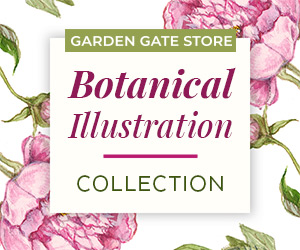When it comes to nurturing our plants and helping them thrive, the terms “plant food” and “fertilizer” are often used interchangeably. However, there are subtle differences between the two, which many of us may not be aware of. Understanding these distinctions can help us make informed decisions about the nutritional needs of our plants and ensure their survival for a long time.
In this blog, we will delve into the differences between plant food and fertilizer, exploring their composition, purpose, and application methods. By the end, you’ll have a clear understanding of how to provide the best nutrition for your beloved plants.
Composition and Nutritional Content
Plant food and fertilizer differ in their composition and nutritional content. Plant food is typically a commercially formulated product designed to provide a balanced blend of essential nutrients for plants. It often contains a mixture of macronutrients (nitrogen, phosphorus, and potassium) as well as micronutrients (iron, manganese, zinc, etc.) that plants require for healthy growth. The nutrients in plant food are usually derived from organic or synthetic sources and are presented in a form readily available for plant uptake.
On the other hand, fertilizer is a broader term that encompasses a range of products used to supplement soil fertility. Fertilizers come in various forms, including organic and synthetic options. They may contain specific nutrients or focus on delivering a high concentration of one particular nutrient. Fertilizers are designed to replenish nutrient levels in the soil, providing plants with the necessary elements for optimal growth.
Application Methods
Plant food is typically applied directly to the plant foliage or soil. It may come in liquid form, which can be diluted with water and used for foliar spraying or soil drenching. Alternatively, it can be in the form of granules or pellets that are mixed into the soil during planting or periodically applied around the plant’s base. Some plant foods are slow-release formulations, gradually releasing nutrients over an extended period, while others require more frequent applications.
Fertilizers are applied to the soil around the plant to address specific nutrient deficiencies or imbalances. They can come in granular, liquid, or powdered form. Granular fertilizers are spread evenly around the plant’s root zone, and their nutrients gradually release into the soil with watering or rainfall. Liquid fertilizers can be mixed with water and applied directly to the soil. Powdered fertilizers can be mixed into the soil during planting or sprinkled on the soil surface.
Environmental Considerations
When choosing between plant food and fertilizer, it is important to consider their environmental impact. Some plant fertilizers, specifically vegetable fertilizers, may contain synthetic chemicals or high concentrations of nutrients, which, if not used responsibly, can contribute to water pollution or harm beneficial soil organisms. Organic plant foods and fertilizers derived from natural sources like compost, manure, or seaweed are often considered more environmentally friendly options. They provide nutrients in a slow-release form, promoting soil health and minimizing the risk of nutrient runoff. Organic plant foods and fertilizers also help improve soil structure and enhance its ability to retain moisture, reducing the need for excessive watering.
Choosing the Right Option
When deciding between plant food and fertilizer, consider the specific needs of your plants and the condition of your soil. If your plants show signs of nutrient deficiencies or require a well-rounded nutritional boost, plant food can provide a comprehensive solution. On the other hand, if your soil lacks specific nutrients or requires targeted supplementation, a fertilizer designed to address those deficiencies may be the best choice. Remember to follow the instructions provided by the manufacturer for proper application rates and timings. Regular soil testing can also help determine any nutrient imbalances and guide your choice of plant food or fertilizer.
Conclusion
While the terms “plant food” and “fertilizer” are often used interchangeably, they have distinct differences in composition, purpose, and application methods. Plant food provides a balanced blend of nutrients to support overall plant health, while fertilizers target specific nutrient deficiencies in the soil. Understanding these differences can help you make informed decisions when it comes to nourishing your plants. Consider the specific needs of your plants and the environmental impact when choosing between plant food and fertilizer. By providing the right nutrients in the right way, you’ll ensure your plants thrive and flourish.
















